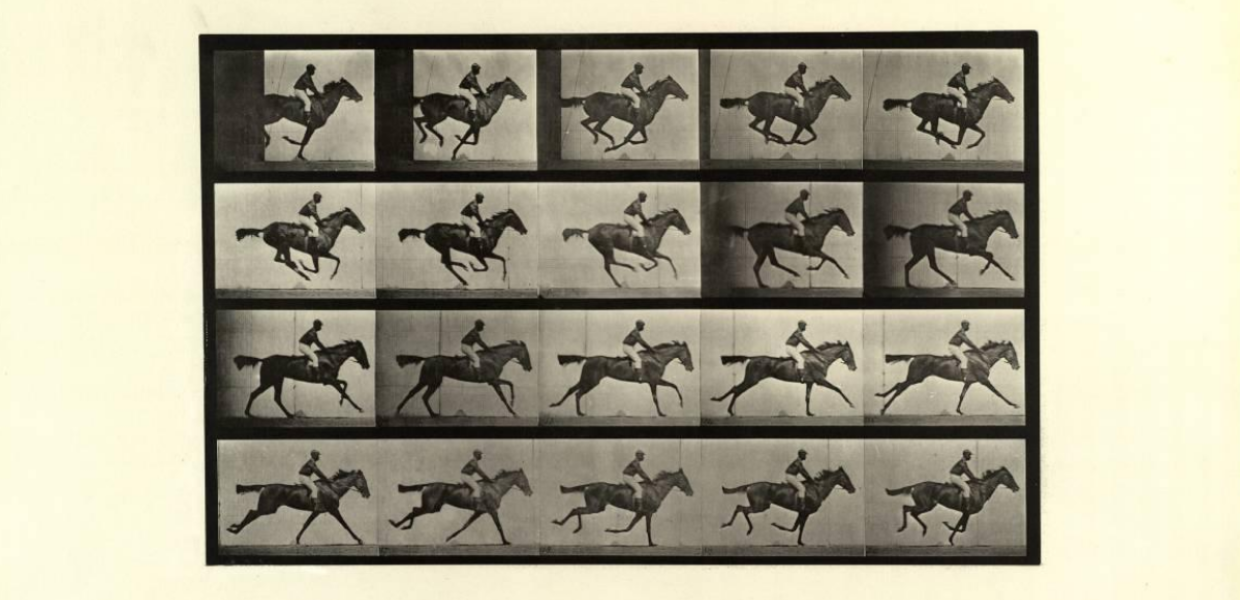Building copyright knowledge in the cultural heritage sector: Europeana’s steps
In a short report which brings together findings from research and conversations conducted in the past months, we have outlined our understanding of the main challenges that the cultural heritage sector deals with in relation to copyright. This has helped us define some steps for Europeana to work with its data partners, and help them overcome these challenges. In this post, we present some of these steps, and share the report into copyright challenges for the sector.

- Title:
- Animal locomotion. Plate 627
- Creator:
- Eadweard Muybridge
- Date:
- 1887
- Institution:
- Ajuntament de Girona
- Country:
- Spain
- Copyright:
- Public Domain
Europeana shares cultural heritage from institutions across Europe, and we see first hand how a lack of copyright knowledge affects not only institutions, but also digital cultural heritage. Inaccurate information about the possibilities for using content makes it less reliable to researchers, educators, creators and life-long learners, and undermines the trust they put in us.
Europeana develops standards which seek to address this: we encourage those who share data with Europeana to follow best practices, such as not claiming copyright on content that is in the public domain; to assign digital objects a rights statement; and to be diligent in providing accurate rights information.
We are also doing research and working to better understand barriers to institutions providing accurate rights information.
For example, according to the 2019 accuracy report, rights information is often incorrectly applied in our collections, and this is not an isolated occurrence. Similar challenges exist across the sector. In a survey conducted by the Europeana Copyright Community, participants identified “the lack of copyright knowledge among cultural heritage professionals and an absence of training opportunities” as the biggest challenge they faced in the realm of copyright.
And during the May 2020 Europeana aggregators forum meeting, Europeana aggregators provided very useful insights into the ways they deal with copyright when submitting data to Europeana, some of the struggles they face, principles they disagree with, and support they could benefit from.
We have summarised our findings from this research in a short report which outlines our understanding of the main challenges that the cultural heritage sector deals with in relation to copyright. And with this in mind, we have come up with some tangible steps to support those who share data with Europeana.
We strive to support the broader sector, and hope that these steps will help us shape how this can happen, and move in that direction. They aim to provide greater clarity around our frameworks and standards, clarify how to use rights statements and creative commons license and tools, and build knowledge of copyright, particularly to the extent that it is necessary when sharing data with Europeana:
-
We will update information on the copyright page dedicated to our data partners, and add some more relevant sources and materials such as flowcharts, examples or FAQs.
-
We will more actively communicate our copyright updates and related information with data partners.
-
In the autumn and winter of 2020 - 2021, we will be running a series of webinars on specific topics of particular interest to data partners and the cultural heritage institutions which they work with. Look out for more information on Europeana Pro news.
We will evaluate the usefulness of these actions. At the same time, we are considering some longer-term actions, including supporting national or aggregator specific workshops with contributions or materials, initiating a campaign to raise awareness of how to accurately select a rights statement, and respecting the public domain, or providing some other forms of copyright training.


